
This is Part 2 of the 7-part Productivity Series. Each week we are going to tap for an emotional block to taking action. Check out the full series.
Even when we know the right action to take, it can be difficult to do because we are so good at sabotaging ourselves. The Take Action Now program was created to eliminate self-sabotaging behavior so you can take decisive action towards achieving your goals. Full details here.
Allowing distractions, such as email or social media notifications, is one of the easiest ways to be unproductive. Distractions also come in the form of unruly thoughts rattling around in our heads. This tap-along audio (with a full printable script below the audio player) will help to calm your mind before you begin working, helping you to stay focused.
Subscribe in: Apple | Android | Spotify
I recognize the fact that I have a lot going on…I recognize that my mind is trying to keep track of so many things…And because my mind is trying to keep track of all of these things…It bounces from place to place…Making it difficult for me to stay focused…And difficult for me to get everything done…I appreciate that these distractions are just a part of my system trying to keep me safe…It doesn't want me to miss anything…It bounces from idea to idea because it thinks all of the stimulus is important…I know all of these distractions aren't actually important… I don’t need to pay attention to them right now…But my subconscious mind doesn't always realize that…It doesn't always know what is important…It bounces from place to place because it thinks everything is important…But I recognize the fact that it is possible for me to stay focused…And to ignore all of these other distractions…And still be safe…It doesn’t mean I will miss something important… When I focus on what is in front of me…I'm not ignoring everything else…I'm simply setting it aside for the moment…I'm simply avoiding it for now…Once the task in front of me is done…I can return to paying attention to all of the other tasks…I can pay attention to any other idea that my subconscious mind throws up…Because I know these thoughts will not be lost…I will be reminded of anything I need to do in the future…So I give myself permission to focus on what is in front of me right now…Calmly letting go of everything else…Except what I am working right now…And if I am distracted again…I give myself permission to be easy with myself…Simply to let the distracting thoughts pass…Returning to the task in front of me…Without beating myself up for the distraction…As I keep letting these distractions go…It will become easier and easier for me…I will become more focused on my work…I will be kinder to myself regarding these future distractions…I know it is possible for me to be more focused…I give myself permission to find that focus gently.
 This is Part 1 of the 7-part Productivity Series. Each week we are going to tap for an emotional block to taking action.
This is Part 1 of the 7-part Productivity Series. Each week we are going to tap for an emotional block to taking action. 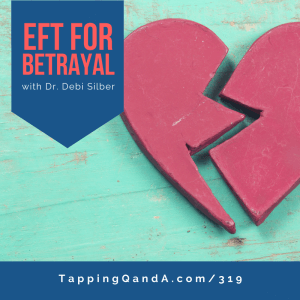 Betrayal is unlike other emotions because it creates problems beyond the immediate pain we feel when we realize we have been betrayed. Betrayal also sows seeds of doubt at a subconscious level, which can create lasting physical and emotional problems.
Betrayal is unlike other emotions because it creates problems beyond the immediate pain we feel when we realize we have been betrayed. Betrayal also sows seeds of doubt at a subconscious level, which can create lasting physical and emotional problems.
 Good morning,
Good morning, I often hear from frustrated clients because they have tapped for an issue, but they haven't made any progress. When this happens they question whether tapping can help.
I often hear from frustrated clients because they have tapped for an issue, but they haven't made any progress. When this happens they question whether tapping can help.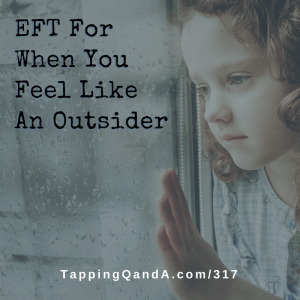 For me, one of the hardest feelings is that of feeling like an outsider. When you are in a room full of people, feeling like you don’t belong and your head spins with imagining what everyone is thinking about you – and NONE of it is good!
For me, one of the hardest feelings is that of feeling like an outsider. When you are in a room full of people, feeling like you don’t belong and your head spins with imagining what everyone is thinking about you – and NONE of it is good!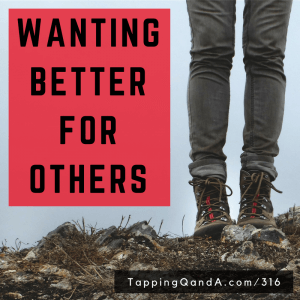
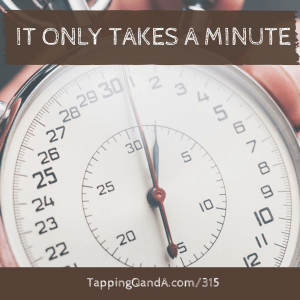 Sometimes I put off tapping because I don't feel I have enough time for an in-depth tapping session. But often you don't need much time to make a huge difference to how you are feeling.
Sometimes I put off tapping because I don't feel I have enough time for an in-depth tapping session. But often you don't need much time to make a huge difference to how you are feeling.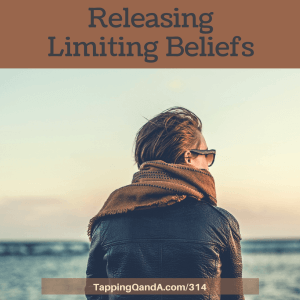 Many of our beliefs are held at a subconscious level and some of them do not serve us well. They may be inaccurate in the way we describe ourselves, our relationships, and the world and this inaccuracy causes us problems in daily life because subconsciously we believe them to be true.
Many of our beliefs are held at a subconscious level and some of them do not serve us well. They may be inaccurate in the way we describe ourselves, our relationships, and the world and this inaccuracy causes us problems in daily life because subconsciously we believe them to be true.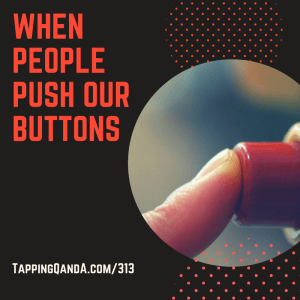
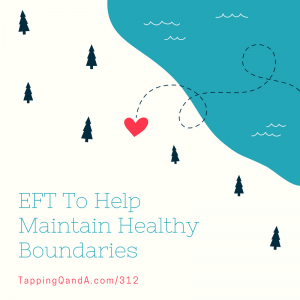 Our relationships are living, breathing organisms, alive with the constant dynamic of give and take. At times there is a lot more give than take. This can affect our feelings about the relationship, about the other person in the relationship, and can even have a detrimental effect on our other relationships
Our relationships are living, breathing organisms, alive with the constant dynamic of give and take. At times there is a lot more give than take. This can affect our feelings about the relationship, about the other person in the relationship, and can even have a detrimental effect on our other relationships In
In  Did you know that swearing is good for you?
Did you know that swearing is good for you?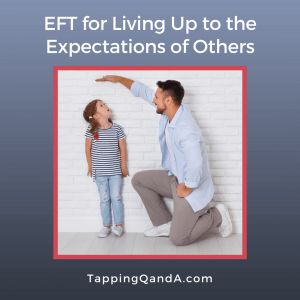 One of the situations that my clients struggle with the most is dealing with the expectations of their loved ones.
One of the situations that my clients struggle with the most is dealing with the expectations of their loved ones. We all know that tapping is a powerful tool when we are in pain, distress, and discomfort. Did you know it can also be a useful tool when we are celebrating success?
We all know that tapping is a powerful tool when we are in pain, distress, and discomfort. Did you know it can also be a useful tool when we are celebrating success?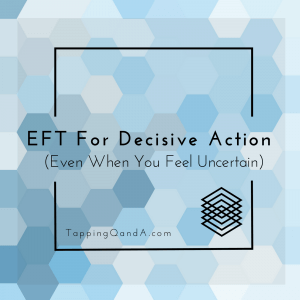 Recently I was listening to the actor and comedian
Recently I was listening to the actor and comedian 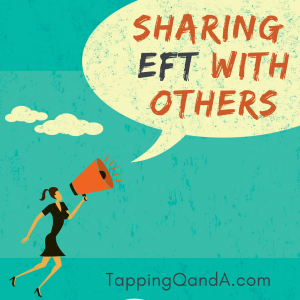 Sharing EFT/Tapping with our loved ones can be a difficult task, mostly because it is kind of weird.
Sharing EFT/Tapping with our loved ones can be a difficult task, mostly because it is kind of weird.
 As much as we would like to share tapping with our friends and family, it is not something that we can share with young children.
As much as we would like to share tapping with our friends and family, it is not something that we can share with young children.
 In our modern world it is so easy to become disconnected from our bodies, especially as most of us spend our days seated at desks, rather than engaged in any kind of physical labor.
In our modern world it is so easy to become disconnected from our bodies, especially as most of us spend our days seated at desks, rather than engaged in any kind of physical labor.
